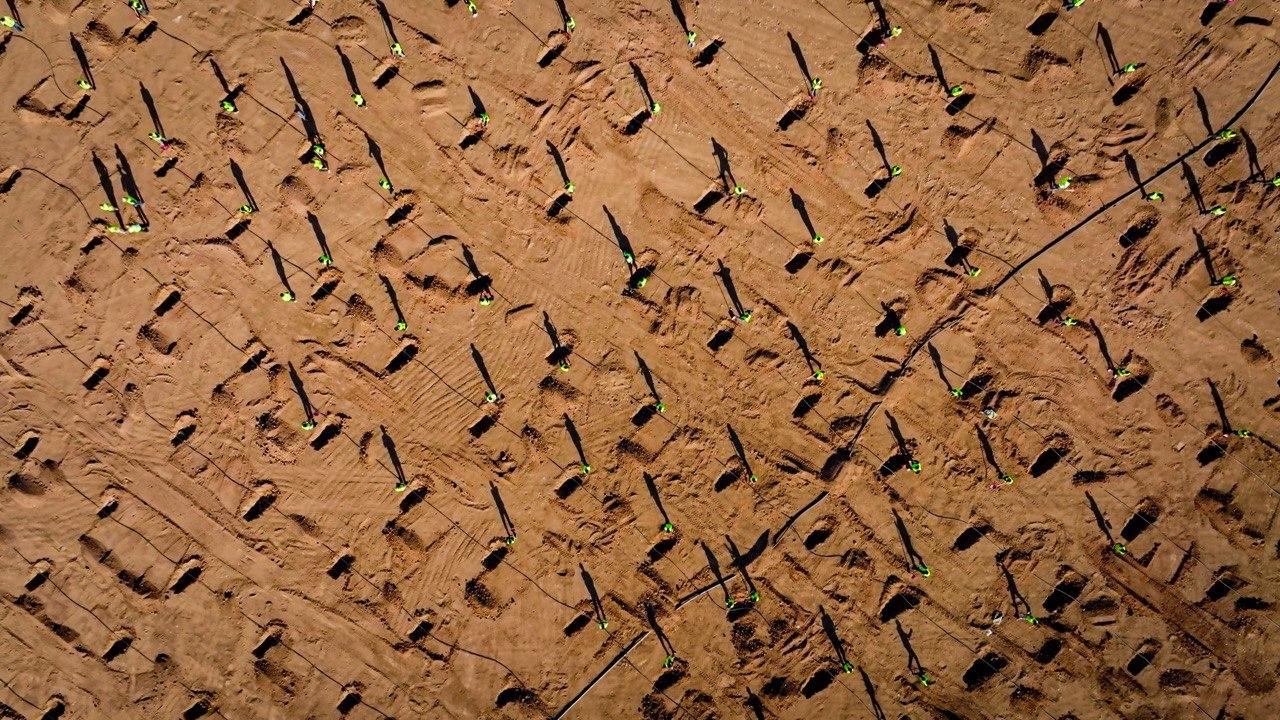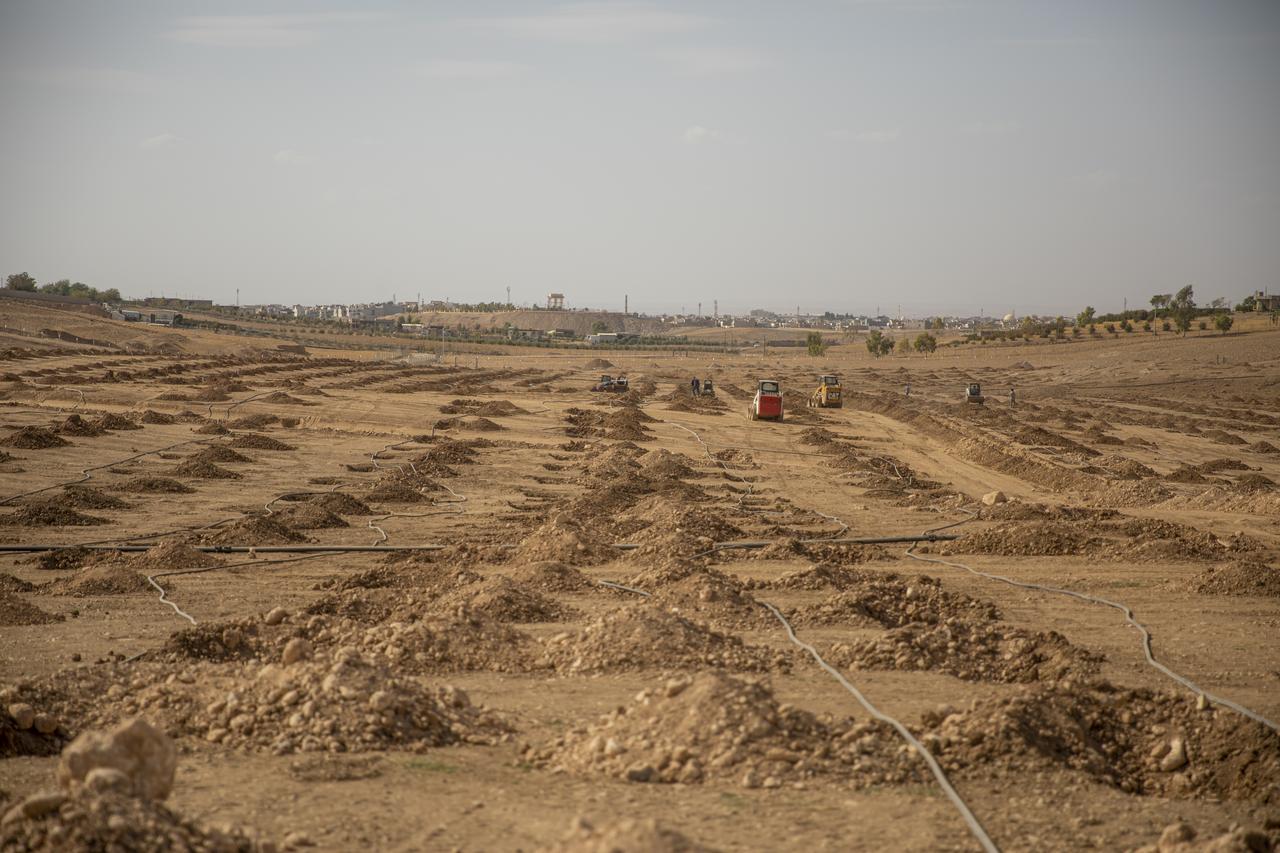
Erbil, one of the oldest continually inhabited cities in the Middle East and once an important urban center of the Ottoman Empire, has launched a large-scale “green belt” project to clean its air, shield the city from sandstorms and give its circular urban core a new landscape. The initiative, led by the Iraqi Kurdish Regional Government (KRG), will plant around 7 million peanut and olive trees on a ring that is 2 kilometers wide and 92 kilometers long, fully wrapping the city.
Erbil sits on a wide plain and has grown for centuries around its historic citadel, mosques and markets. Because its main roads are planned as rings that start and end at the same points, the city already has a rare circular character, and officials now want to overlay this shape with a continuous belt of trees.
Authorities say the project aims to help the city breathe better, make it visually greener, and support its ongoing expansion without losing environmental balance.
In Erbil’s case the belt will be 2 kilometers (over 57 miles) deep and, when completed, will form a 92 kilometer-long living wall of trees around the urban area.

The project was officially set in motion when Iraqi Kurdish Prime Minister Masrour Barzani planted the first sapling during a ceremony. At the same time, thousands of officials and volunteers who had been preparing the area for about a month began planting in the designated zones.
Barzani underlined that the initiative matters for Erbil not only as an environmental step but also as a measure against the advancing effects of climate change and desertification. He warned that if desertification deepens, people may eventually be forced to leave their homes and move to other regions, adding that such movements would not stay local and could even reach European countries. He also called on European states to support projects that try to slow down climate-driven migration.
Erbil, in recent years, has suffered from air pollution and repeated sandstorms. Local authorities state that the air quality has slightly improved after the Iraqi Kurdish government shut down illegal oil refineries and generator centers that had been causing both noise and air pollution. Officials say the new environmental projects are being rolled out one by one to keep that positive momentum.

Erbil Governor Umid Hosnav said the green belt will be implemented in eight stages, and the first stage has already started. According to him, the full line will be 92 kilometers and will surround Erbil with a 2 kilometer-wide green corridor.
He noted that “around 7 million peanut and olive trees will be planted,” adding that the government is taking steps to remove factors that trigger climate change while also trying to give the city a more attractive look.
Hosnav explained that a part of the project will consist of tourist and recreational areas where residents and visitors can spend time. Even so, he said that the main purpose remains greening. Since Erbil is still a developing city on an open plain, officials expect the belt to give it a new silhouette.
The project will create jobs in planting, irrigation and maintenance in the early phases. In later stages, when the peanut and olive trees begin to produce, the belt is expected to support more employment and to make these products available on the market at more affordable prices.
Barzani described the initiative as part of wider efforts to diversify income sources, saying that the private sector will also benefit from what the project produces.